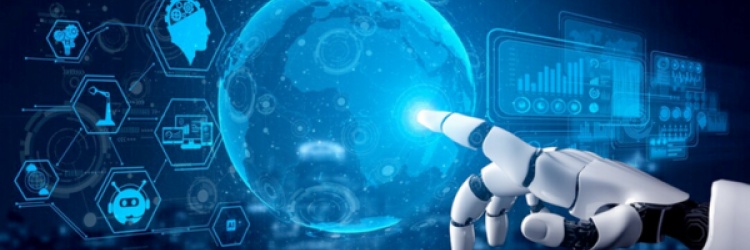Like most of us, you're probably still coming to grips with the disruptive effects of the generative AI boom that began just two years ago, but there's no rest for the weary.
It's time to gear up for the next wave, known as agentic AI.
Basically, this form of AI goes beyond the sort of gathering and processing of information that generative AI does as it responds to prompts and produces text or images. Agentic AI can act as a sort of personal assistant and execute tasks on your behalf. To pick a simple example: Rather than just telling you what information is available on a claim, your agentic AI could ping people on your behalf and ask for the detailed cost estimate you need or for an update on when car repairs will be finished, then notify the client, without the need for you to be involved.
AI's reputation for "hallucinations" will make for cautious implementation of agentic AI, at least in the early days, but you're going to hear a lot about it in 2025. So let's get started.
While AI has burst into the public consciousness in recent years, especially once ChatGPT was introduced in late 2022, the first wave traces all the way back to 1956. Computing pioneer John McCarthy was making a presentation at a conference at Dartmouth and needed a term to describe the work he was doing. "Artificial intelligence," it was.
The work took a number of different routes during its first few decades — limited, of course, by computers that were a tiny fraction of a percent as powerful as they are now. I came in during the expert system and natural language processing phases in the 1980s and early 1990s. Expert systems, which tried to encode the knowledge of human experts, eventually fell out of fashion because it turned out that there were too many subtleties to fully capture what humans did. Natural language processing, by contrast, eventually gave us "Hey, Siri..." and "Alexa..."
Let's lump all that together and call it the first wave and, despite many false starts, label it a success. No, we aren't yet answering to the robot masters than some futurists predicted decades ago, but, I mean, Siri, Alexa and their ilk are remarkable.
The second wave came when generative AI rocked the world two years ago. Suddenly, AI not only had a brain, it had a mouth — in the broadest sense. It could speak, write and draw or animate, on command.
A key shift began with the realization that machines could learn, that they didn't need to be taught everything. Yes, you could do a lot by interviewing the world's best players at chess or Go, but you could also just tell a computer the rules, let it play hundreds of billions of games against itself in a few hours and emerge with a system that could overpower the best human players.
Transformers, which appeared on the scene in 2017, took the handling of data to the next level. Rather than looking at a sequence of data and predicting what comes next, like previous forms of AI, transformers can look at entire (even massive) data sets and process the connections simultaneously. (If you're curious, there's a good description of them here.)
We're still dealing with the implications of that second wave, but now we're facing the prospects of AI agents that don't just serve as research assistants but that can act on our behalf.
As futurist Bernard Marr explains here, we could be looking at a world "with humans taking on roles similar to chiefs of staff who coordinate and manage teams of AI agents. This transformation is already sparking the emergence of exciting new positions like AI agent trainers, AI workflow orchestrators and AI ethics compliance officers....
"But this is just the beginning. Consider a near future where your personal AI agent contacts an AI agent of a car rental company to negotiate the best deal based on your preferences and schedule. In healthcare, specialized agents could create patient medication summaries, while in finance, AI agents might handle dispute resolution and insurance claims....
"For organizations still focused on earlier waves of AI, the time to explore agentic AI is now. The transition isn't just about adopting new technology, it's about reimagining how work gets done.... The future of work will be shaped by our ability to effectively collaborate with AI agents."
As Marr acknowledges, there will need to be some guardrails for these AI agents, and there will be a learning curve.
I'd go even further. I've been hearing for decades that software agents are imminent. Remember internet refrigerators and the like? They were going to keep track of everything in them and reorder as necessary. But how was my refrigerator supposed to know what I planned to eat for dinner in the next week? I'm pretty idiosyncratic. Aren't you? Besides, with my daughters about to come home for Christmas, I'm going to need a lot more food, including items I never buy on my own. (Matcha, anyone? Gluten-free pasta?) When they head back to DC at the end of the month, I'll get back to normal. An internet refrigerator wouldn't have a clue.
Based on history, I think AI agents will be heavily circumscribed for some time, maybe years, just as their earlier counterparts have been, even though I acknowledge that the new versions are far more intelligent.
In any case, as I said, you're surely going to hearing a lot about them in the New Year. Get ready.
Cheers,
Paul


